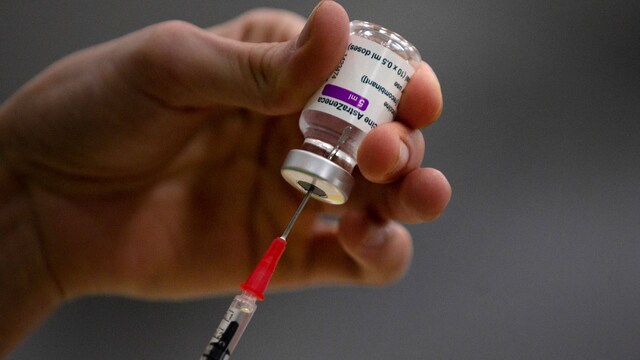Experts agree that a third shot is warranted for people with compromised immune systems, who may not have mounted a strong immune response to the initial doses.

In this Friday, Feb. 19, 2021 file photo, a pharmacist prepares a syringe from a vial of the AstraZeneca coronavirus vaccine during preparations at the Vaccine Village in Antwerp, Belgium. Image credit: AP Photo/Virginia Mayo
This month, several countries have begun or will start giving booster shots to people already vaccinated against the coronavirus , in an effort to bolster immunity in the face of the fast-spreading delta variant and the change to a cooler season that is likely to bring more people together indoors.
, in an effort to bolster immunity in the face of the fast-spreading delta variant and the change to a cooler season that is likely to bring more people together indoors.
The Czech Republic announced this week that it would offer a booster, beginning Sept. 20, to anyone who had previously been vaccinated with either a single or double dose. The country strongly recommended boosters for people older than 60.
Similar policies were recently announced in Germany and France, which are offering boosters to older people and those with underlying health conditions. And Israel is now offering boosters to vaccinated people as young as 12.
In the United States, the Biden administration has said it is planning to offer booster shots to most Americans eight months after vaccination, assuming federal regulators clear them. The Food and Drug Administration will hold a public meeting on the topic Sept. 17.
Despite the flurry of booster programs in wealthier nations, the science of whether they are needed is not yet clear.
Some studies suggest that the protection that the vaccines provide against infection and mild disease may be waning. But they remain highly effective at preventing the worst outcomes, including severe disease and death, and scientists have said that a blanket recommendation for boosters is premature.
Experts generally agree, however, that a third shot is warranted for people with compromised immune systems, who may not have mounted a strong immune response to the initial doses. Several countries, including the United States, are now offering additional shots to this vulnerable group.
On Thursday, the European Medicines Agency, the European Union’s drug regulator, said there was no urgent need to give booster doses of COVID-19 vaccine to fully inoculated individuals without underlying health issues, citing a report from the European Center for Disease Prevention and Control. Extra doses should be considered for those with weakened immune systems, and as a precautionary measure for frail older adults, especially those living in nursing homes, the agencies added.
vaccine to fully inoculated individuals without underlying health issues, citing a report from the European Center for Disease Prevention and Control. Extra doses should be considered for those with weakened immune systems, and as a precautionary measure for frail older adults, especially those living in nursing homes, the agencies added.
The agency said that at this time, the urgency is to finish vaccinating all those eligible for a normal vaccination course. The drug regulator is continuing to assess data on booster shots.
Britain’s health secretary, Sajid Javid, said Wednesday that a third vaccine dose would be offered to those 12 and older with severely compromised immune systems “as soon as possible.”
“I am determined to ensure we are doing all we can to protect people in this group and a third dose will help deliver that,” Javid said in a statement.
But the decision by some nations to give booster shots to healthy vaccinated people — when many countries have nascent vaccination programs — has raised ethical questions.
In early August, Dr. Tedros Adhanom Ghebreyesus, director-general of the World Health Organization, called for a moratorium on coronavirus vaccine booster shots until the end of September, and an “urgent reversal” in the global supply of vaccines that had mainly gone to wealthier nations, leaving low-income countries vulnerable.
vaccine booster shots until the end of September, and an “urgent reversal” in the global supply of vaccines that had mainly gone to wealthier nations, leaving low-income countries vulnerable.
WHO officials have taken pains to distinguish between booster shots used to shore up immunity in vaccinated populations and additional doses that may be needed by the immunocompromised to develop immunity in the first place.
On Wednesday, Tedros reiterated the point.
“Third doses may be necessary for the most at-risk populations where there is evidence of waning immunity against severe disease and death, such as the very small group of immunocompromised people who did not respond sufficiently to their initial doses or are no longer producing antibodies,” he said at a news conference. “But for now we do not want to see widespread use of boosters for healthy people who are fully vaccinated.”
Aina J. Khan c.2021 The New York Times Company










